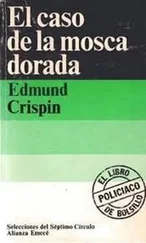Miss Parry favoured them with a comprehensively omniscient and admonitory stare. She said, ‘Has any of you girls seen Brenda Boyce since school ended?’
There was a moment’s silence until someone plucked up courage to reply. Then, ‘No, Miss Parry,’ said Elspeth.
And, ‘No, Miss Parry,’ the others chorused respectfully.
‘Did any of you see her leave for home?’
‘No, Miss Parry,’ said Elspeth.
‘No, Miss Parry,’ said the others.
The generalized lack of information conveyed by this liturgical responsory struck Miss Parry as profitless. She directed her attention to Janice Dalloway, the girl (she was suffering, it should be said, from a temporary access of evangelical mania) who had rebuked Elspeth’s blaspheming.
‘When did you last see Brenda?’ Miss Parry demanded.
‘Oh, Miss Parry, it was at the end of history, only Miss Fitt kept me behind to talk about my work and then I came straight here so I didn’t see her when she went out of school.’
‘Perhaps she’s in her study,’ a third girl volunteered.
Miss Parry, expectant of further suggestions, received none. ‘Very well,’ she said at last. ‘Go on with your meeting. And remember that you must be out of the building by six o’clock.’
‘Yes, Miss Parry,’ said Elspeth.
‘Yes, Miss Parry,’ the others chanted dutifully.
‘In the normal way,’ Miss Parry added in parting, ‘I like to regard your studies as inviolate – which is to say that I don’t take official cognizance of what is said in them. But swearing, Elspeth, is another matter.’ She paused; Elspeth went rather pale, and studied the floor intently. ‘If I hear you using language like that again, there will be trouble.’
She departed, closing the door behind her. A gust of awe-stricken whispering pursued her along the corridor.
The study which Brenda Boyce shared with another girl was very similar to the first, but tidier, and at present empty. Miss Parry was on the point of quitting it when she caught sight of an envelope lying on a desk by the open window. Investigating, she found it was addressed to herself, and opened it.
Dear Miss Parry
Please don’t worry about me. I’m going away with someone who will make me happy. I can look after myself, so don’t worry. I’ll be writing to Mother and Father. Thanking you for everything you’ve done for me,
Yours sincerely,
Brenda Boyce
Miss Parry uttered an involuntary exclamation of annoyance and dismay, yet – oddly enough – the first thought that occurred to her was that Brenda’s prose style had undergone a remarkable change. None of the usual prolonged euphuistic periods were in evidence – though this rather consciously unlettered simplicity might be due to the stress of some emotion…Miss Parry hunted out a specimen of Brenda’s handwriting and compared it with the handwriting of the note; they tallied exactly – but the stylistic dissimilarity remained. From the laborious flamboyance of ‘the visit to France, the spectacle of bare scaffolds streaming with aristocratic gore, awoke multifarious echoes in Wordsworth’s rhythmicized autobiography’ it was a far cry to ‘I’m going away with someone who will make me happy’. Too far a cry, Miss Parry reflected. She put the paper and envelope carefully into a pocket, and strode back to her study, little relishing the job of communicating her discovery to Brenda’s parents.
In the event, however, they were contained and sensible about it – the more so as Miss Parry did not apprise them of her vague doubts regarding the authenticity of Brenda’s letter. Mr Boyce asked her to communicate immediately with the police; she had more information than they, he said, and the superintendent had better see her first.
But the superintendent, she was informed over the telephone by the sergeant in charge at the police station, was at present visiting the headmaster of Castrevenford School. Miss Parry thanked him, replaced the receiver, and, lifting it again, dialled the number of the headmaster’s study.
The call came through just as the superintendent was on the point of departure. He was a tall, burly, youngish man in plain clothes whose features some freak of heredity had assembled into a perpetual expression of muted alarm, so that to be in his company was like consorting with a man dogged by assassins. Apparently he regarded the business of the cupboard as a will-o’-the-wisp, and he was rehearsing his views to Fen, who had that moment returned from his period with the Classical Sixth, when the telephone rang. It was the headmaster who answered it.
‘Yes, Miss Parry,’ he said. ‘What? Disappeared?…Good God…Yes, the superintendent’s here. One moment.’
He handed the instrument to Stagge, who listened in silence to Miss Parry’s narrative. ‘Very well, ma’am,’ he said finally. ‘I’ll come down immediately. We’ll trace her if it’s humanly possible…Yes. Goodbye.’
He rang off, and explained the situation to the others. ‘So it’s possible she’s gone away with some man,’ he concluded, and glanced at the headmaster. ‘I don’t know if one of your older boys—’
‘Oh, my dear fellow,’ the headmaster expostulated, ‘that’s hardly probable. When a girl of that age elopes with a man, it’s generally someone much senior to herself.’
‘Just the same, sir, if you could make a check…’
‘I can’t, superintendent. At least, not until ten o’clock. The boys are allowed to be out with their parents this evening, and they’re not due back before then.’
Stagge squared his shoulders and picked up his hat. ‘Well, I shall have to do what I can. I hope you’ll let me know, sir, if anything more that’s unusual happens here – anything at all, however harmless it may seem. One can never be sure what one’s up against.’
And with this nebulous threat he departed. The headmaster relapsed into a chair.
‘This would happen just before speech day,’ he muttered. ‘Heaven help us.’
‘Heaven help the girl,’ said Fen rather grimly. ‘I don’t believe in this elopement. It’s the sentimental who elope, and according to you Brenda Boyce is anything but sentimental.’
‘You mean—’
‘I mean that she’s been either abducted or killed.’
The headmaster stared incredulously. ‘But why, my dear Gervase? Why?’ And when Fen shook his head and remained silent, ‘It’s incredible…I don’t know what’s going to happen about the play. I must tell Mathieson.’ He got up and went to the window, whence he was lucky enough to observe that pedagogue slowly receding on a bicycle. ‘Mathieson!’ he called. ‘Mathieson!’
Mathieson braked violently, wobbled, dismounted, and led his machine back to the window. The headmaster hurriedly explained matters to him.
‘Well, headmaster,’ he said eventually, ‘the girl who’s playing Isabella knows the part of Katherine, and is more or less capable of taking it. That means I shall have to spend the whole of tomorrow drumming Isabella’s part into someone fresh…Fortunately there’s very little of it.’
The headmaster agreed that this was indeed fortunate; he seemed almost inclined to congratulate Shakespeare on his prescience in the matter. After a little further discussion Mathieson went away, and Fen drove the headmaster back to his house, where they bathed and dined. Over coffee, the headmaster said, ‘I’m afraid I shall have to neglect you this evening. I’ve got to go back now and interview one or two of the more importunate parents, and after that there’s a Fasti meeting.’
‘What in God’s name is a Fasti meeting?’
‘It’s to settle the school calendar for the rest of the term, and make sure that the various arrangements don’t clash.’
Читать дальше












